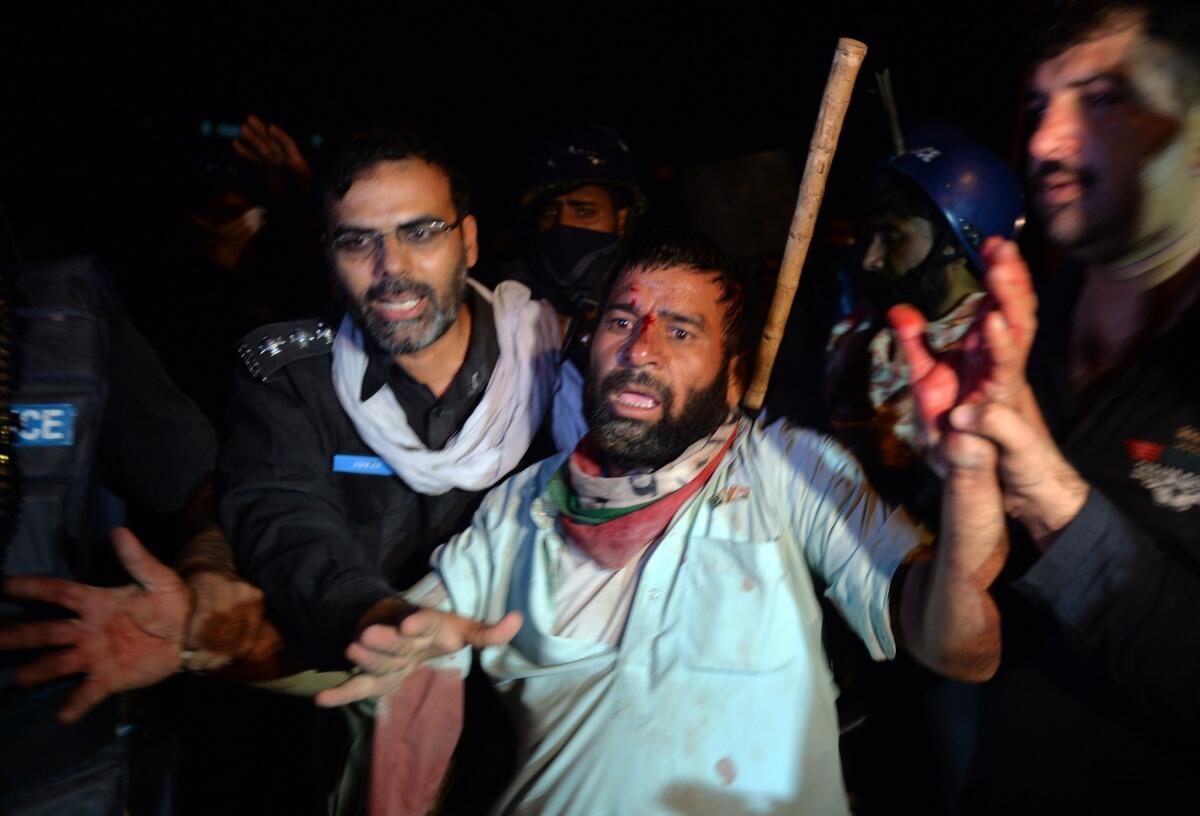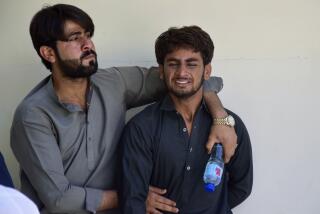3 killed as police battle anti-government protesters in Pakistan

Reporting from Islamabad, Pakistan — At least three people were killed in Pakistan’s capital Sunday as clashes erupted between authorities and opponents of Prime Minister Nawaz Sharif, according to health officials.
Police used tear gas, batons and rubber bullets to push back protesters, who responded by pelting the officers with stones, as a weeks-long protest demanding Sharif’s resignation and the establishment of a new government turned violent.
The clashes began late Saturday and injured hundreds of civilians, including children, as well as 72 police officials, authorities said.
The protests, led by Imran Khan, a politician and former cricket hero, and populist cleric Tahirul Qadri, had been peaceful since they began in Islamabad Aug. 15, but turned chaotic when the demonstrators attempted to march on the prime minister’s residence.
Qadri alleged that at least 13 of his followers were killed as police clashed with the demonstrators.
Islamabad police said that some 20,000 people joined the march on Sharif’s official residence late Saturday after talks mediated by the army between Khan’s political party and the government failed to end the political impasse.
The slide into chaos has prompted speculation that the army would step in and declare martial law, dealing a critical blow to Pakistan’s efforts to establish a civilian democracy.
The army chief, Gen. Raheel Sharif, who is not related to the prime minister, summoned a meeting of senior commanders to discuss the crisis. Sharif also held a meeting with senior members of his government, which issued a statement saying it would defend state institutions at all costs.
Khan has called for a national revolt against Sharif, whom he accuses of fraud in last year’s elections. He urged his supporters to pour into the streets nationwide “even if it requires breaking barriers.”
His increasingly aggressive tactics have drawn scorn from some allies, including the president of his Pakistan Tehreek-e-Insaf party, Javed Hashimi, who criticized the decision to march on the prime minister’s residence.
“Imran Khan would be responsible if martial law is imposed in Pakistan,” Hashimi said.
But protesters, many of whom were sleeping in the streets with little to eat or drink, said they would not be turned back before achieving “a revolution.”
“Today is the worst day. I have seen scores of my friends getting injured,” said 35-year-old Muhammad Sufyan, a demonstrator from the eastern city of Lahore who came with his mother, wife and 4-year-old son.
Still, he said, “we will not go back until Tahirul Qadri orders us to do so.”
Sahi is a special correspondent.
More to Read
Sign up for Essential California
The most important California stories and recommendations in your inbox every morning.
You may occasionally receive promotional content from the Los Angeles Times.










